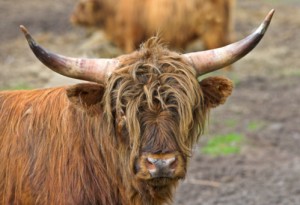What's Unique About "Kine"?
If you like words even a little bit, you should take advantage of Anu Garg‘s wordsmith.org. It is an idiosyncratic exploration of how language works; his “word a day” e-mail is particularly fun.
The “word a day” theme this week is “words with unusual arrangements of letters.” The first word in this series was “verisimilitude,” which Garg notes has perfectly alternating consonants and vowels. (Not bad, Anu, but my son’s name is even better, as it has perfect consonant-vowel symmetry while using only a single vowel: Solomon. An even longer example is Tunku Varadarajan‘s last name.)
“Verisimilitude” was followed by “syzygy” (“one could hyperpolysyllabically contrive a longer word having four Ys, but syzygy nicely lines up three of them organically in just six letters,” Garg notes) and “yob” (the rare word created by spelling a different word backward).

(Hemera)
But today’s word is my favorite. It’s “kine.” Before you click this link, or look the word up elsewhere, try to guess what is unique about it. A slight hint: the answer is related to the topic of this post and, marginally, this one one too. The answer is below.
Give up?
Kine is, as Garg write, “perhaps the only word in English that has no letters in common with its singular form, cow. Other words that are pluralized using -n marker are children, brethren, and oxen.”
Curious to know if any of you language mavens out there know of another word that suits these criteria. Also curious to know if you’ve ever used the word “kine” in a sentence. Verlyn Klinkenborg has, of course.

Comments